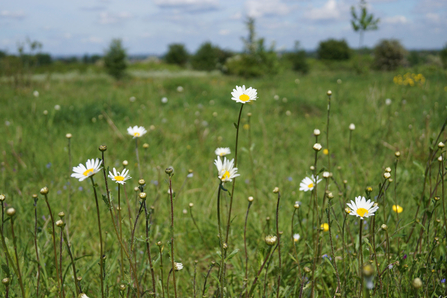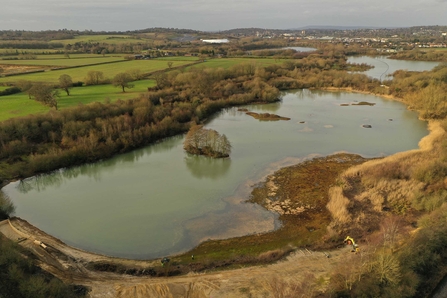Among the many new environmental terms that have surfaced in recent years, nature-based solutions (NBS) may be unusual.
Not only is it easy to understand, it also makes immediate sense, even to the novice. As the name suggests, it describes natural responses to challenges including climate change, water security or emergency risk management (such as flooding).
Unsurprisingly, NBS come in many shapes and sizes, from protecting or restoring existing ecosystems to innovative hybrid approaches. For example, a revitalised wetland area may create a valuable carbon store and flood defence, while a new city park or green roof can contribute to urban cooling and benefit mental and physical health.
Working with nature
Nature-based solutions need to be both effective and sustainable. A key principle is that we should work with nature and not against it, for example by preserving flood-plain meadows rather than building concrete barriers. Of course, sometimes ‘hard’ solutions are unavoidable, but NBS often cost less, are more effective and provide wildlife-rich places for people to enjoy.
This is a mindset that we now need more than ever. As we emerge from the Covid-19 crisis, nature-based solutions must be part of our recovery. In Surrey we are already working hard in this area. Our nature reserve at Priest Hill (see case study below) is an excellent example.
Biodiversity matters
For the Trust it’s particularly important that the NBS approach supports biodiversity. For example, aggressive tree-planting schemes are often proposed as a means of carbon sequestration. It’s true that they can be effective in this – as well as providing increased shade and shelter, pollutant and water absorption, a renewable biofuel resource and recreational space.
However, inappropriate tree cover can be disastrous for rare wildlife and may cause further local extinctions. The conifers that were planted on heathland a century or more ago still require clearance and the plantations we see in many ancient woodlands should ultimately be replaced with native broadleaved trees (which incidentally sequester more carbon).
Organic growth
It is also important that nature based solutions are embraced by local people. They must provide clear social, economic and cultural benefits rather than being imposed on a community ‘for its own good’.
As the Wildlife Trust for Surrey we are uniquely placed to help deliver more NBS across the county. We are already applying a biodiversity net gain approach in our partnership with the Coast-to-Capital local enterprise partnership and we are open for business to help local companies and organisations use NBS to offset the impact of their activities.



